

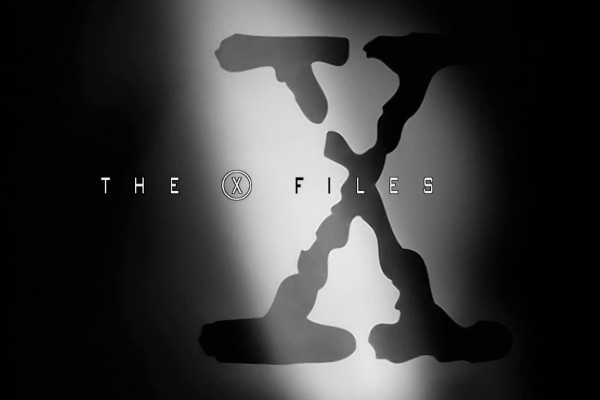
The 10-episode season is currently available for streaming at Amazon Prime. Please join me as I rank the entire season from worst to best...
Although spoilers are largely avoided, some plot elements are discussed as part of this article... some of the images from this post-watershed series may also be unsuitable for younger readers.
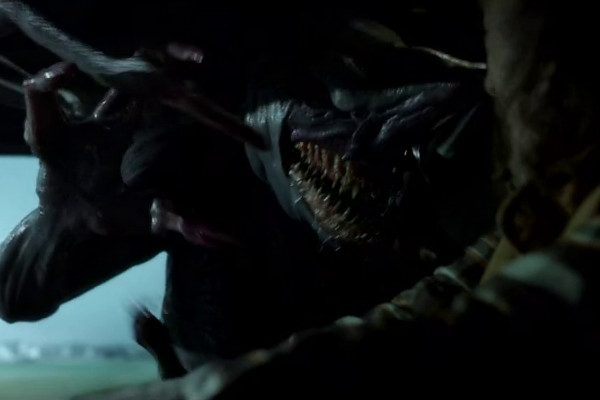
While the third chapter of the My Struggle storyline had a "it's so bad it's almost genius" charm, the fourth (and, hopefully, final) part is just so bad it's... bad. While The X-Files was always underpinned by Mulder's search for his sister, once the series has gone the path of giving Mulder and Scully a son with telekinesis and telepathy, it's past the point of no return. Particularly when filled with ludicrous moments that fail to make sense on pretty much any level. Ultimately this is risible pulp nonsense, probably an all-time low for a once-great series.
Although the ratings for The X-Files still please the demographics, they dropped significantly for season 11, with only the opener getting above four million. My Struggle IV closed off the season with a mild upturn, the 3.43 million viewers who tuned in just short of the season's 3.74m average. Speaking of trivia, then the series' tagline - "The Truth Is Out There" - is regularly changed throughout the eleventh season. It should be noted that it changed very little in the original series, and, when it did, it was more of a novelty - just 19 times over 201 episodes - but is now commonplace.
Season ten did it just once, but season eleven does it more often than it doesn't, with the following entries: "I Want to Believe, I Want to Lie" (My Struggle III), "Accuse Your Enemies of That Which You are Guilty" (This), "You See What I Want You to See" (Ghouli), "A War is Never Over" (Kitten), "VGhlIFRydXRoIGlzIE91dCBUaGVyZQ=" (Rm9sbG93ZXJz) "I Want To Be Beautiful" (Nothing Lasts Forever) and, with this final episode, "Salvator Mundi".
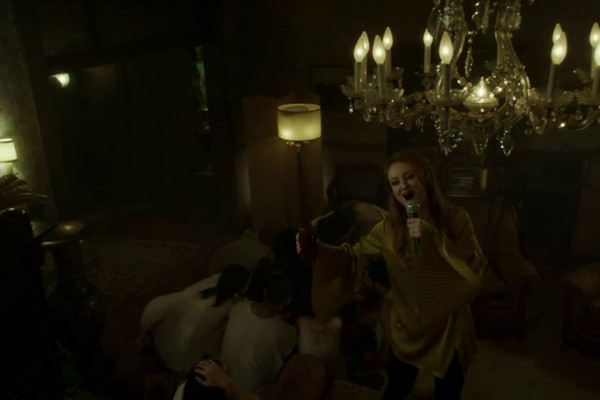
Script coordinator Karen Nielsen gets to write her first script for the series, while James Wong frenetically directs. Nothing Lasts Forever returns to the goriness and operatic style that first came into play during season three; buckets of gore and sub-horror trappings replacing a solid narrative. Fiona Vroom plays a deliberately mannered, waspish head of a organ-devouring cult, a characterisation that sees a jarring mix between comedy and horror. Reminscient, in some ways, of the fourth season episode Sanguinarium, it merges excess blood and procedural gore with a satire about vanity, but the satire is blunted by indulgence.
Better than all the silly vampiric fixations are all the scenes between Mulder and Scully; the episode's title perhaps refers to the agents more than the main plot, as both are confronted with their own mortality. Mulder using glasses is a good joke that eventually becomes overegged, though while Gillian Anderson has been public about this being her last series, even playing an ageing Scully she remains committed to the part.
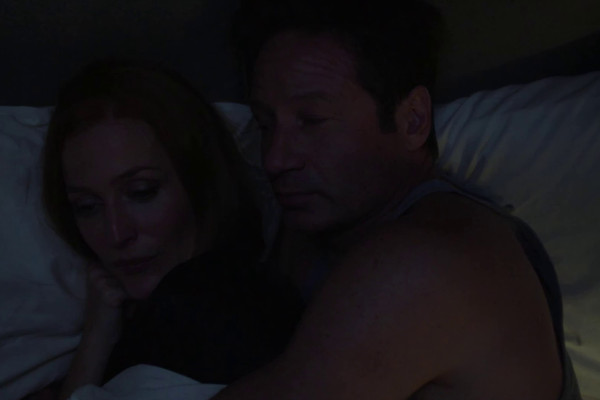
Mulder and Scully investigate a case of a man being murdered by his doppelganger. Along the way Mulder talks to a drunken Irish schizophrenic, while Scully investigates his sister, a lady who throws excrement at her like a monkey in a zoo and tells her she's lost her sex apeal and has a dried-up vagina. Scully, incensed, avoids three lumps of poo flying past her head then asks Mulder in a hotel room they're sharing if she's still attractive. They eventually have sex, before both are in a race against time against their twisted dark sides, projected by the brother and sister team playing a game of psychic hangman.
It would take a writer of some talent to make all of the above deathly boring, but then Chris Carter is a writer of no small talent. Ranging from silly to tedious, this third episode rarely gets out of first gear and brings to mind one of the more throwaway, forgettable instalments from the early years. Season Ten of The X-Files could be frequently bad, but rarely was it dull... a cardinal sin that Plus One makes in spades. Sole credit for this episode must go to Karin Konoval, who plays both the brother AND the sister, effectively four roles. Konoval had appeared in the original series, with roles in Home and Clyde Bruckman's Final Repose .... both, sadly, far better episodes than this one.

Mulder and Scully become embroiled in a plot that's more Black Mirror than The X-Files: a computer simulation that takes the identity of anyone using a mobile phone and uploads them to an artificial afterlife when they're dead. This gives the series another excuse to bring back Dean Haglund as Langly, one of the deceased Lone Gunmen, begging to have the whole thing closed down.
There's lots of comedic touches in this Glen Morgan episode that work, as well as some amusing (albeit overt) ways to reflect how The X-Files has changed under the Trump Administration. But almost every scene contains an event, motivation or deduction that is so ludicrous it makes season opener My Struggle III look grounded. Virtually nothing in this story connects with anything tangible, with leaps of logic and shifts in behaviour so wildly extreme it's as if the script was pieced together patchwork as some kind of party game.
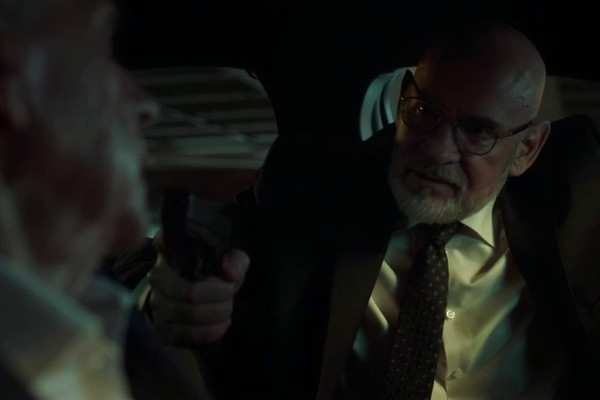
Utterly ludicrous yet absurdly watchable, My Struggle III starts off by telling us that the second instalment was all a vision inside Scully's head, and that her brain can transmit morse code signals while she's in a coma. The episode hits the ground running with ridiculous plot developments and doesn't let go, even though this particular genetic twist is reminiscent of the Cat's heartbeat having a funk rhythm in Red Dwarf.
There's a confused car chase scene where Mark Snow's incidental music begins to sound like the percussion to The Equalizer, which gets explained in the credits which list "Ford Motor Company" and "Samsung" as Promotional Consideration Sponsors. Meanwhile, William B. Davis (nearly 80, and, like the rest of the cast, very much looking his age) has to be commended for delivering Chris Carter's now-standard purple dialogue without laughing. Meanwhile, David Duchovny is given to thinking entire chunks of reflection to himself in narration, for no readily apparent reason. As Mulder wonders "I was running on only adrenaline and Scully's premonitions", you have to wonder who he's actually talking to.
As a "mythology" episode, it's one that doesn't reward those without long memories... although all of the characters have been off-air as long as the series has, quite naturally, it's been sixteen years since Chris Owens appeared as Jeffrey Spender. Originally he was against Mulder and Scully... here he's their most trusted confidant. Can anyone really remember that far back the hows and whys? Things are made even more complicated by the knowledge that the events of the previous episode - itself already almost two years in the past - effectively didn't happen.
There's a horrific out-of-character moment where Mulder slits a man's throat open, and he and Skinner engage in another shoving competition. Carter tries to keep things topical by using shots of Trump and mention of "Fake News"... perhaps unfortunately (or aptly, depending on your point of view) it ends with the Smoking Man revealing that he's the father of Scully's baby, after having impregnated her while drugged in En Ami... all this after the real-life events that led to #MeToo. My Struggle III met with generally negative reviews and it is, in most respects utterly terrible... but it has a perverse appeal, if only in the sheer disbelief of what it presents.